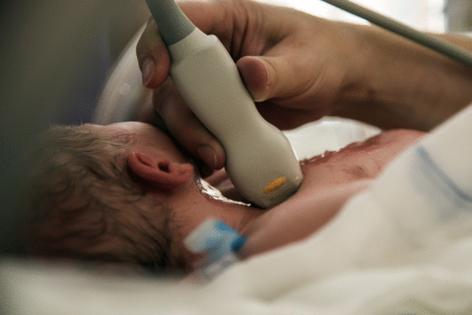Commentary: The health of preterm infants is being threatened
Published in Op Eds
As neonatologists, we care for the most fragile newborns, some no larger than the size of their parent’s hand. These preterm newborns face many medical challenges. Their lungs and other organs are not fully developed, including their digestive system. Their skin can be paper thin, more vulnerable to injury and less protective against infection. They often need help breathing, maintaining their body temperature, and gaining weight.
During our careers, medical science has advanced to address these challenges – not perfectly, but to an extent that we can now offer some hope to the families of the more than 300,000 infants who are born preterm each year in the U.S. Infant mortality due to preterm birth or low birthweight has decreased by nearly 25% since 2010.
A significant proportion of this improvement has been driven by advances in neonatal intensive care, including developments in nutritional support provided to preterm infants in neonatal intensive care units (NICUs). Providing preterm infants nutrition specifically designed to meet their special needs helps to promote optimal postnatal growth, a critical component of helping the infants recover from the many complications associated with their prematurity.
This progress is now under threat.
Numerous lawsuits claim that specialized formulas and human milk fortifiers designed specifically to meet the nutritional needs of premature infants cause a condition called necrotizing enterocolitis, or NEC. Two juries recently returned extremely high verdicts for monetary damages against the two companies that make these formulas, and close to 1,000 other cases are pending nationwide.
Neonatologists like us fear what will happen to the preterm newborns in our NICUs if the companies’ response is to stop making these products. A spokesperson for one of the companies said these verdicts “make it difficult to continue supplying these products indefinitely.”
NEC, the condition underlying these lawsuits, is a serious complication that can lead to severe intestinal injury, sometimes causing long-term health complications, prematurity, and even death. It affects 6-7% of very low birth weight infants (those born with a birthweight less than 1,500 grams).
Despite decades of clinical and basic science research, we still don’t know exactly what causes NEC. The greatest risk factor for NEC is simply prematurity and the immaturity of the infant’s digestive system. Breast milk lowers the risk, probably because of protective factors in the milk, but even infants fed only breast milk sometimes develop NEC. Formula-fed infants have a higher risk of NEC, but the vast majority of infants who receive formula do not get NEC. Recently, in response to a report from the NIH’s Eunice Kennedy Shriver National Institute of Child Health and Human Development, the FDA, CDC and NIH agreed it is likely the absence of human milk, rather than the exposure to formula, that increases the risk of NEC.
We need more research into ways to prevent prematurity, to understand the epidemiology of NEC, and to identify optimal feeding of premature infants. That research is important and will take time.
Meanwhile, we continue to care for thousands of preterm infants born each week in the U.S. While we know breast milk is the best nutrition for them, breast milk alone is not enough to meet the nutritional needs of preterm infants. Some parents cannot produce enough breast milk for their infant. Not all hospitals are able to offer pasteurized donor human milk, and some parents may feel that donor milk is not appropriate for their infants. Even if human milk is used, it must be supplemented with specially designed fortifiers for preterm and very low birth weight infants to thrive. Specialized preterm formulas and special fortifiers are a routine and necessary part of neonatal intensive care for preterm infants.
We are facing the very real possibility that decades of research and development to improve the nutritional support of preterm infants will be erased by attempts to blame the use of preterm formula for this devastating disease.
NEC is a terrible and feared disease. At the bedside, neonatologists see the devastating pain and suffering it causes preterm infants and their families. We work every day to support the families affected by NEC and provide the best care of these infants. While we do not have an easy solution, we hope that greater investments in research will prevent NEC from devastating another family in the future. In the meantime, we call on policymakers to ensure the continued availability of critical nutritional support for preterm infants. Nutritional decisions for preterm infants should be made in the NICU, not in the courtroom.
____
Eric Eichenwald, MD, is Chair, American Academy of Pediatrics Committee on the Fetus and Newborn. Munish Gupta, MD MMSc is Chair, American Academy of Pediatrics Section on Neonatal-Perinatal Medicine
___
©2024 Tribune Content Agency, LLC.




























































Comments